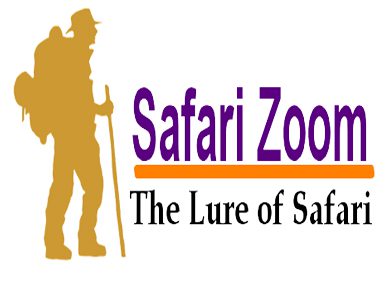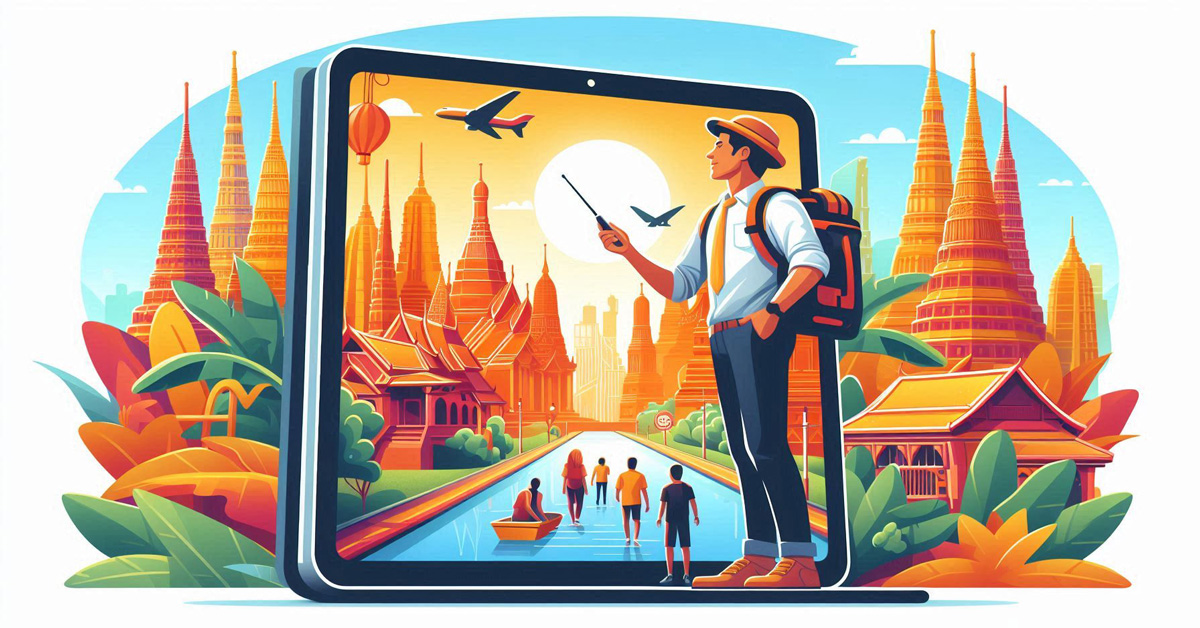Nail the Tour Guide Interview: Proven Strategies for Success
Landing a job as a tour guide requires more than just a passion for travel and storytelling. The interview process is a critical step where you must demonstrate your knowledge, communication skills, and ability to engage with a diverse range of people. In this article, we’ll provide you with proven strategies to help you excel in your tour guide interview and secure the job.
You can also read:
- Top 10 Interview Questions And Answers For Tour Guides
-
Navigating Travel and Tourism Interviews: Tips for Success
Understanding the Role of a Tour Guide
What Employers Look For
Before you even walk into the interview room, it is important to understand what employers are seeking in a tour guide. Tour companies want individuals who are not only knowledgeable about destinations but also skilled in engaging and entertaining their clients. They look for candidates who can handle unexpected situations with grace and who have a genuine passion for sharing their knowledge with others.
Essential Skills for Tour Guides
Employers value several key skills in a tour guide:
- Communication: Being able to convey information clearly and engagingly.
- Problem-solving: Handling challenges and unexpected situations efficiently.
- Adaptability: Adjusting to different group dynamics and preferences.
- Knowledge: A deep understanding of the destinations you’ll be guiding.
Preparing for the Tour Guide Interview
Research the Company
One of the most crucial steps in preparing for your interview is researching the company. Understand their values, the types of tours they offer, and their target audience. This knowledge allows you to tailor your responses to align with the company’s expectations. For instance, if the company specializes in eco-friendly tours, be prepared to discuss how you incorporate sustainable practices into your guiding.
Know Your Destinations
In addition to company research, it’s vital to have a thorough understanding of the destinations you’ll be guiding. Employers will expect you to be knowledgeable about the history, culture, and significant landmarks of these locations. Being able to share interesting facts and stories about the destinations will showcase your expertise and passion for the role.
Practice Common Interview Questions
While every interview is unique, certain questions are likely to come up. Practicing your answers to these common questions can help you feel more confident and articulate during the interview.
Conducting mock interviews with a friend or mentor can help you refine your responses and improve your overall interview performance. This practice can also help you manage nerves and build confidence.
Dress Appropriately
First impressions matter, so dress professionally for your interview. While the tour guide role may be casual, a polished appearance demonstrates respect for the opportunity and the company.
Handling Common Tour Guide Interview Scenarios
Scenario-Based Questions
Tour guide interviews often include scenario-based questions that assess your ability to think on your feet and handle real-life situations. These questions are designed to evaluate how you would react in challenging circumstances, such as dealing with difficult clients, managing unexpected delays, or responding to emergencies. Here’s how to approach these scenarios:
Example Scenario: Dealing with a Difficult Client
Question: “What would you do if a client is unhappy with the tour and begins to complain?
Answer Strategy: Begin by acknowledging the client’s concerns and showing empathy. Explain that you would listen carefully to understand their issue, apologize for any inconvenience, and take immediate steps to resolve the problem. For instance, if the complaint is about a missed attraction, you might offer alternative solutions, such as highlighting another point of interest or providing additional information to enhance their experience. Your answer should demonstrate your commitment to customer satisfaction and your ability to remain calm under pressure.
Example Scenario: Managing a Delayed Tour
Question: “Imagine your tour bus breaks down, and there is a significant delay. How would you handle the situation?”
Answer Strategy: Start by describing how you would ensure the safety and comfort of your clients first. Then, outline your plan to keep the group informed about the situation, communicate with the transportation company, and provide regular updates. You might also mention that you would use the downtime creatively, such as sharing more stories or engaging the group in a discussion about the local culture. This shows that you are resourceful and capable of managing unexpected events while maintaining a positive experience for your clients.
Behavioral Questions
Behavioral questions are another common feature in tour guide interviews. These questions are based on the idea that past behavior is the best predictor of future performance. When answering behavioral questions, use the STAR method (Situation, Task, Action, Result) to structure your response.
Example Behavioral Question: Leadership Skills
Question: “Tell us about a time when you had to take charge in a difficult situation.”
Answer Strategy: Begin by setting the context (Situation) and explaining the specific challenge you faced (Task). Then, detail the steps you took to address the issue (Action) and conclude with the positive outcome (Result). For example, you might describe a time when a sudden change in weather forced you to reroute a hiking tour, how you communicated with the group, made quick decisions to ensure everyone’s safety, and how the group appreciated your leadership and flexibility.
Technical Knowledge and Expertise
In addition to soft skills, employers may test your technical knowledge about the destinations, landmarks, and logistics involved in the tours. This could include questions about specific historical events, cultural significance, or even logistical challenges like navigating through busy tourist areas.
Example Question: Knowledge of Local History
Question: “What can you tell us about the history of [specific landmark]?”
Answer Strategy: Provide a concise yet informative answer that highlights your knowledge. Include key dates, events, and figures related to the landmark, and share any interesting anecdotes that could captivate clients during a tour. For instance, if asked about the Colosseum in Rome, you might discuss its construction during the Flavian dynasty, its role in ancient Roman culture, and some lesser-known facts about its use over the centuries.
Example Question: Logistical Challenges
Question: “How would you manage a tour in a crowded and popular destination?”
Answer Strategy: Discuss your strategies for keeping the group together, ensuring everyone can hear and see important sights, and managing time effectively to avoid long waits or missed attractions. You could mention using technology, like audio guides, or planning ahead to visit less crowded times or areas. Emphasize your ability to keep the tour smooth and enjoyable, even in challenging conditions.
Emphasizing Your Unique Selling Points
Highlighting Special Skills
During the interview, make sure to highlight any unique skills or experiences that set you apart from other candidates. This could include proficiency in multiple languages, specialized knowledge in a particular area (such as art history or ecology), or experience working with diverse groups of people.
Example: Language Skills
Question: “Do you speak any other languages?”
Answer Strategy: If you are fluent in another language, this can be a significant advantage in the tour guide industry. Explain how you’ve used your language skills in previous roles to enhance the tour experience, such as by translating for non-English-speaking clients or understanding cultural nuances that improve communication and interaction with locals.
Example: Specialized Knowledge
Question: “Do you have expertise in any specific area related to our tours?”
Answer Strategy: If you have a background in a relevant field—such as history, biology, or anthropology—emphasize how this expertise will allow you to provide deeper insights during tours. For instance, if you are knowledgeable about marine biology, you could discuss how you can offer detailed information on marine ecosystems during a coastal tour, making the experience more enriching for clients.
Passion and Enthusiasm
Employers are not just looking for knowledge and skills—they want to see your passion and enthusiasm for the job. During the interview, let your excitement for guiding and sharing your love of travel shine through. This can be the deciding factor in setting you apart from other candidates.
Example: Passion for the Industry
Question: “What motivates you to be a tour guide?”
Answer Strategy: Share a personal story or experience that ignited your passion for guiding. Perhaps it was a transformative trip you took, a mentor who inspired you, or a lifelong interest in history or nature. Convey how your passion drives you to create memorable experiences for your clients and how it translates into your work ethic and commitment to excellence.
Showcasing Your Skills and Professionalism During the Interview
Effective Communication
During the interview, your communication skills will be under scrutiny. Be clear, concise, and engaging in your responses. Use anecdotes and examples from your previous experiences to illustrate your points. Demonstrating your ability to tell a compelling story will highlight your suitability for the role.
Handling Difficult Questions
Interviews often include challenging questions designed to assess your problem-solving abilities and resilience. When faced with a difficult question, take a moment to collect your thoughts, then answer confidently and honestly. If you don’t know the answer, it’s okay to admit it, but express your willingness to learn.
Demonstrating Adaptability
Tour guides must be adaptable, as no two tours are the same. During your interview, share examples of how you’ve adjusted your approach based on the needs and preferences of different groups. This will show that you can handle the varied demands of the job.
Body Language and Attitude
Your body language and attitude during the interview are just as important as your verbal responses. Maintain eye contact, smile, and project confidence. A positive, enthusiastic demeanor will make a lasting impression on your interviewers.
Overcoming Nerves and Building Confidence
Mental Preparation
It’s normal to feel nervous before an interview, especially for a position as dynamic and demanding as a tour guide. However, learning to manage your anxiety can make a significant difference in your performance.
Visualization Techniques
One effective method to calm your nerves is visualization. Spend some time before the interview imagining yourself succeeding—picture the interview going smoothly, with you answering questions confidently and engagingly. Visualizing success can boost your confidence and reduce feelings of anxiety.
Positive Affirmations
Using positive affirmations can also help build your confidence. Repeat phrases like “I am knowledgeable,” “I am prepared,” and “I am confident” to yourself before the interview. These affirmations can reinforce your belief in your abilities and set a positive tone for your performance.
Physical Preparation
Your physical state can also impact how you perform in an interview. Here are a few tips to ensure you’re physically prepared:
Get Adequate Rest
Ensure you get a good night’s sleep before your interview. Being well-rested will help you think more clearly and respond more effectively to questions.
Eat a Balanced Meal
Eating a balanced meal before the interview can stabilize your energy levels. Avoid heavy or greasy foods that might make you feel sluggish. Instead, opt for a light meal that includes protein, complex carbohydrates, and healthy fats to keep you feeling alert and focused.
Practice Deep Breathing
Deep breathing exercises can help calm your nerves and clear your mind before the interview. Take a few moments to practice deep breathing—inhale deeply through your nose, hold the breath for a few seconds, and then exhale slowly through your mouth. This simple exercise can reduce anxiety and help you approach the interview with a clear head.
Body Language: The Silent Communicator
Importance of Non-Verbal Communication
While your verbal responses are crucial, your body language is equally important in conveying confidence and professionalism. Here are some key aspects of body language to be mindful of during your tour guide interview:
Maintain Eye Contact
Maintaining eye contact with your interviewers demonstrates confidence and helps build a connection. It shows that you are engaged in the conversation and interested in what they are saying. However, be careful not to stare—balance eye contact by occasionally looking away to convey thoughtfulness.
Smile Genuinely
A genuine smile can make you appear approachable, friendly, and confident. Smiling at appropriate moments during the interview can also help put both you and the interviewers at ease. Remember, as a tour guide, your ability to engage and connect with people is critical, and a warm smile is an excellent way to showcase this skill.
Open Posture
Adopt an open posture by sitting up straight, with your shoulders relaxed and your hands resting comfortably in your lap or on the table. Avoid crossing your arms, as this can appear defensive or closed off. An open posture conveys openness, confidence, and receptivity, all of which are important qualities for a tour guide.
Gestures and Movement
Using gestures to emphasize key points can make your responses more engaging and dynamic. However, be mindful not to overdo it—excessive hand movements can be distracting. Aim for natural, fluid gestures that complement your words. Additionally, if you need to move during the interview (such as during a demonstration), do so with purpose and confidence.
Leveraging Your Experience and Background
Relating Past Experiences to the Role
Whether you have prior experience as a tour guide or come from a different background, it’s important to draw connections between your past experiences and the role you’re applying for. This shows the interviewer how your skills and experiences will directly benefit their company.
Example: Customer Service Experience
If you have a background in customer service, you can highlight how those skills are transferable to the tour guide role. For example, discuss how your experience in handling customer inquiries and resolving issues has prepared you to deal with client needs and expectations on a tour. Emphasize your ability to remain calm and professional in challenging situations, ensuring customer satisfaction.
Example: Teaching or Public Speaking Experience
If you have experience in teaching or public speaking, this can be a strong asset for a tour guide position. Explain how your ability to convey complex information in an understandable and engaging way has prepared you for guiding groups through historical or cultural sites. Highlight your skills in engaging audiences and adapting your communication style to suit different groups.
Highlighting Your Passion for Travel and Culture
Your passion for travel and culture is likely one of the reasons you’re pursuing a career as a tour guide. Don’t hesitate to share this enthusiasm during your interview—let it shine through in your answers.
Example: Personal Travel Experiences
If you’ve traveled extensively, mention specific experiences that have enriched your understanding of different cultures and landscapes. For instance, if you’ve hiked through the Andes or explored ancient temples in Asia, share how these experiences have deepened your appreciation for the destinations you’d be guiding in. This not only demonstrates your passion but also your firsthand knowledge of the areas.
Example: Cultural Understanding
In addition to travel, emphasize your understanding and respect for different cultures. Discuss how you’ve immersed yourself in local traditions, learned new languages, or studied the history of the regions you’re passionate about. This cultural sensitivity is crucial for tour guides, as it allows you to provide clients with authentic and respectful experiences.
Final Touches: Wrapping Up the Interview
Asking Insightful Questions
At the end of the interview, you’ll likely be given the opportunity to ask questions. This is not only your chance to learn more about the company and the role, but also to demonstrate your genuine interest in the position.
Example Questions to Ask
– “What does success look like in this role?”
– “When can I hear from your about this post?”
– “How do you see the company evolving in the next few years, and how might the tour guide role contribute to that growth?”
– “Can you describe a typical day for a tour guide at your company?”
These questions show that you are thinking strategically about the role and how you can contribute to the company’s success.
Expressing Gratitude
As the interview concludes, take the time to thank the interviewers for the opportunity. Express your enthusiasm for the role and your eagerness to contribute to their team. A sincere expression of gratitude can leave a lasting positive impression.
Example Closing Statement:
“I want to thank you for considering my application and taking the time to meet with me today. I’m genuinely excited about the possibility of joining your team and bringing my passion for travel and storytelling to your clients. I believe I can make a meaningful contribution and would love the opportunity to help create unforgettable experiences for your guests.”
Post-Interview Follow-Up
After the interview, don’t forget to send a thank-you email to the interviewers. This is a chance to reiterate your enthusiasm for the role, mention something specific that was discussed during the interview, and express your appreciation for the opportunity. A well-crafted follow-up message can leave a positive impression and keep you top of mind as they make their decision.
Conclusion: Preparing for a Successful Career
Mastering the tour guide interview is a critical step towards building a successful career in the industry. By preparing thoroughly, presenting yourself confidently, and showcasing your passion for travel and culture, you can set yourself apart from other candidates and secure the role you desire.
Nailing the tour guide interview is all about preparation, presentation, and passion. By understanding what employers are looking for, practicing your responses, and highlighting your unique strengths, you can confidently approach the interview and showcase why you are the perfect candidate for the job. The key to success is not just in answering questions but in telling your story in a way that resonates with the interviewer and reflects your genuine love for guiding.
Remember, the key to success in any interview is to be yourself—let your passion, knowledge, and enthusiasm shine through. With these strategies in hand, you’re well on your way to nailing your tour guide interview and embarking on an exciting and fulfilling career.




